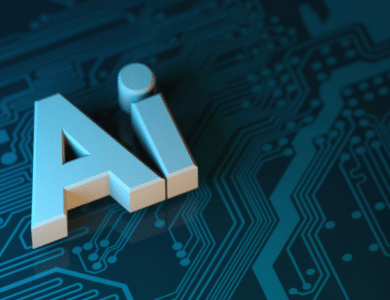The Future of AI: How Artificial Intelligence Will Shape Our Lives by 2030

The Future of AI: How Artificial Intelligence Will Shape Our Lives by 2030
As we hurtle toward the year 2030, the rapid advancement of artificial intelligence (AI) is poised to redefine the very fabric of our existence. From revolutionizing industries to transforming how we learn and heal, AI’s omnipresence looms large on the horizon. Join me on this journey as we explore how AI will intricately weave itself into the tapestry of our lives, shaping a future that is both exhilarating and brimming with possibilities.
Get ready to delve into a realm where machines have transcended mere automation to become thinking, learning entities capable of augmenting human potential in ways previously unimaginable. In this exploration of the future of AI, expect a captivating glimpse into how this technology will not only enrich our lives but also challenge us to navigate ethical conundrums and societal transformations with foresight and wisdom.
Setting the Stage: What is Artificial Intelligence?

Artificial Intelligence, often abbreviated as AI, is a rapidly advancing field of computer science that focuses on creating intelligent machines capable of simulating human cognitive functions. These machines can analyze data, learn from patterns, and make decisions with minimal human intervention. By leveraging algorithms and big data, AI systems can perform tasks that traditionally require human intelligence.
From virtual assistants like Siri to self-driving cars and personalized recommendations on streaming platforms, AI has already become an integral part of our daily lives. As technology continues to evolve, the potential applications of AI are limitless. The promise of AI lies in its ability to enhance efficiency, accuracy, and innovation across various industries, paving the way for a future where intelligent machines work alongside humans to solve complex problems and improve overall quality of life.
The Evolution of AI: A Brief History
In tracing the evolution of artificial intelligence, we embark on a journey that dates back to the 1950s when the term “AI” was first coined. Initially focused on simple problem-solving tasks, AI has since advanced through periods of optimism, known as “AI summers,” and skepticism, or “AI winters.”
Key milestones include the development of expert systems in the 1970s, neural networks in the 1980s, and deep learning in the 2010s. These breakthroughs have propelled AI from symbolic processing to machine learning algorithms capable of mimicking human cognitive functions. The journey continues with ongoing research and technological advancements shaping a future where AI becomes an indispensable part of our daily lives.
AI in Everyday Life: How We Interact with AI Now

Artificial Intelligence has seamlessly integrated into our daily routines, enhancing convenience and efficiency. From virtual assistants like Siri and Alexa providing instant information and managing tasks to personalized recommendations on streaming services and shopping platforms, AI has become an indispensable part of our lives.
Moreover, AI algorithms power social media feeds, tailored advertisements, and smart home devices, offering customized experiences that cater to individual preferences. The ease of communication through chatbots and voice recognition technologies further showcases how AI fosters connectivity and streamlines interactions in the digital age.
The Driving Forces Behind AI Advancements
Artificial Intelligence advancements are being propelled by a convergence of key factors that are shaping the landscape of technology. One of the primary driving forces is the exponential growth in data availability, fueling machine learning algorithms and enabling AI systems to continuously learn and improve their performance. Additionally, significant investments from tech giants and innovative startups are accelerating research and development in AI, pushing the boundaries of what is possible.
Furthermore, advancements in computing power, particularly with the rise of GPU acceleration and cloud computing services, have provided the necessary infrastructure to support complex AI models and applications. The collaborative efforts between academia, industry, and government agencies have also played a crucial role in driving AI forward by fostering a culture of innovation and knowledge-sharing. These combined forces are propelling AI advancements at an unprecedented pace, promising a future where intelligent machines will revolutionize how we live, work, and communicate.
Industry Impact: How AI is Changing Businesses

Artificial Intelligence (AI) is revolutionizing the way businesses operate, enhancing efficiency, and driving innovation across various industries. Through advanced machine learning algorithms, AI enables companies to analyze vast amounts of data quickly and accurately, gaining valuable insights to make informed decisions. This transformative technology streamlines processes, optimizes workflows, and automates tasks, ultimately boosting productivity and competitiveness.
AI-powered solutions are reshaping customer interactions with personalized experiences and tailored services. From predictive analytics in marketing to chatbots for customer support, businesses are leveraging AI to deliver seamless experiences that drive customer satisfaction and loyalty. By harnessing the power of AI in areas such as supply chain management, financial forecasting, and risk assessment, organizations can unlock new opportunities for growth and operational excellence in the evolving digital landscape.
AI in Healthcare: Improving Lives Through Innovation
In the realm of healthcare, artificial intelligence is revolutionizing the way medical professionals diagnose, treat, and manage diseases. From personalized treatment plans based on genetic profiles to predictive analytics for early disease detection, AI is enhancing patient outcomes and transforming the healthcare landscape. By leveraging machine learning algorithms to analyze vast amounts of medical data, AI can identify patterns and trends that humans might overlook, leading to more accurate diagnoses and tailored interventions.
Moreover, AI-powered technologies like remote monitoring devices and virtual health assistants are enabling patients to take a more active role in managing their health. These innovations not only enhance access to care but also empower individuals to make informed decisions about their well-being. As AI continues to advance, the potential for precision medicine and proactive healthcare interventions grows exponentially, promising a future where diseases are detected earlier, treatments are more effective, and overall wellness is prioritized.
Go to the second page of the article
Table of Contents




